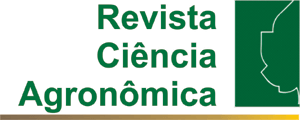ABSTRACT
Plant waste generated in a properly treated arboretum promotes nutrient cycling, reducing the volume of the residue. The aim of this study was to evaluate the potential of plant waste generated in the management of the Botanical Gardens of Rio de Janeiro, Brazil, for the production of organic composts. An experiment was carried out over 110 days to compost leaves, shredded twigs and leaves, shredded twigs and leaves plus manure, blades of grass, and aquatic plants, to determine influence factors and the levels of N, P and K. The experimental design was completely randomised with five treatments and four replications. The manure had an influence on the decomposition of the shredded plant waste. The shredded waste plus manure, blades of grass and aquatic plants resulted in composts that were more stable as regards temperature, while the shredded waste and leaves required more time for the biomass to decompose. The grass and aquatic-plant material displayed higher levels of N and greater reductions in volume. The P and K content was maintained where losses occurred from leaching, due to the process being carried out in an open system.
Key words:
Composting; Green waste; Nutrient cycling


